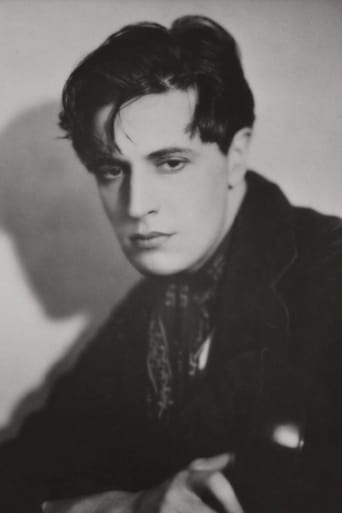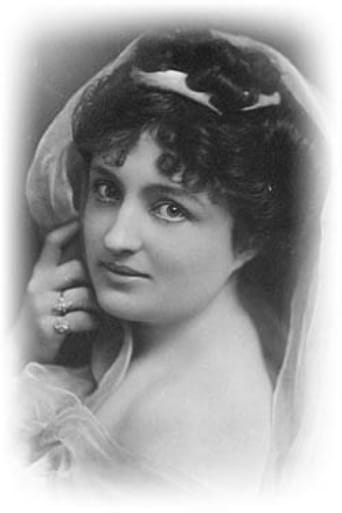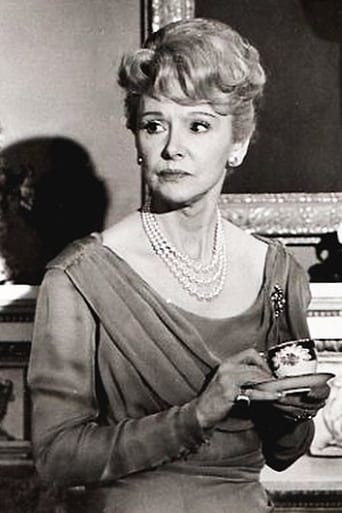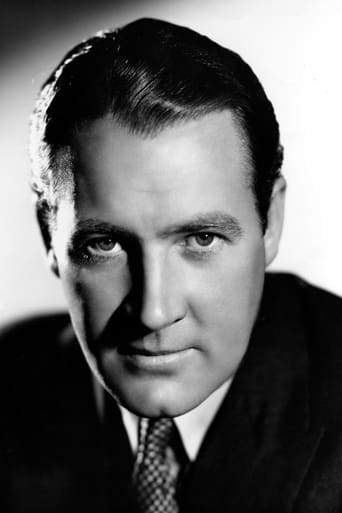Scanialara
You won't be disappointed!
Stometer
Save your money for something good and enjoyable
Moustroll
Good movie but grossly overrated
Hayden Kane
There is, somehow, an interesting story here, as well as some good acting. There are also some good scenes
TheLittleSongbird
As a huge Hitchcock fan, Downhill was an interesting film but while not among his weakest it is a long way from being among his best. The acting is not bad at all, in fact decent(likewise with the chemistry between them), Ivor Novello's performance is expressive and moving if not always subtle, Isabel Jeans is a sympathetic Julia and Annette Benson makes Mabel's scheming believable. Ian Hunter is also very naturalistic in his role. The production values and Hitchcock's direction are Downhill's best qualities, both are superb. The film is really beautifully shot, some of the best and most ahead-of-its-time photography of any of Hitchcock's silent films. The choice of locations are appropriate and well-utilised, particularly with the scenes set in the nightclub and theatre. The hand-held camera shots signifying Roddy's delirium, the slow pan shot during the dance in the Parisian hall scene and the long pulling-back shot with us thinking that Roddy is dressing for a fancy night, then us thinking that he is waiter and then we realise that he is on the stage stand out as being especially good technically. Hitchcock wasn't yet in his comfort zone, but his direction not only shows technical skill but also early in his career being able to show the psychological insight that he was often so good at. As well as enhancing the mood. From a narrative standpoint unfortunately Downhill falls far short in comparison, for all how strong his visuals and direction are Hitchcock apparently had little interest in the story and it comes through loud and clear. The story creaks that wooden floorboards in a deserted house, makes very little sense and does drag quite badly at times. The characters are not very interesting and often one-sided which, especially with the female characters, may leave a sour taste in the mouth. The script touches on the social hypocrisy and the separation of classes- morally mostly- but to me it does very little with those themes and while interesting for when and where Downhill was set it doesn't hold up well today. On the whole, a mixed view here, loved it technically, didn't care for it narratively. 5/10 Bethany Cox
James Hitchcock
During my youth in the sixties and seventies silent films were quite regularly shown on British television, but today are they are few and far between even on specialist movie channels, and are hardly ever shown on terrestrial television, perhaps because the generation that can remember the silent era are mostly dead. Many people therefore do not realise that Alfred Hitchcock made a number of silent films during the twenties; they are much less well-known than his Hollywood films of the forties, fifties and sixties, and even than the British talkies like "The Lady Vanishes" which he made in the thirties. "Downhill", recently shown on Sky Classics, is one of them, dating from 1927, towards the end of the silent era. (It was released in the same year as the first talking picture, "The Jazz Singer"). As the film opens its hero, Roddy Berwick, appears to be a fortunate young man. The son of an aristocratic family, he is School Captain at an exclusive public school. He is popular, intelligent and the school's star rugby player. His world collapses when Mabel, a waitress at a local café, announces to the headmaster that she is pregnant and that Roddy is the father. The real culprit, in fact, is Roddy's best friend Tim, but Mabel appears to have singled Roddy out because his family is wealthier than Tim's and she is hoping that she can blackmail them. Out of loyalty to his friend, however, Roddy accepts the blame and expulsion from the school. This is not the end of his misfortunes, however. He is disowned by his father, who believes him guilty of the accusation. He goes to work as an actor and marries a famous actress named Julia, but the marriage is an unhappy one and she leaves him for another man. He inherits £30,000 from a relation, but loses it all, largely due to Julia's extravagance. He becomes a gigolo in Paris, but quits this line of work in disgust and ends up penniless and starving. The theme of Mabel's pregnancy is treated very obscurely, so much so that some have misinterpreted these scenes and incorrectly concluded that Roddy is expelled on a false accusation of theft. This is because the British censors discouraged any discussion of sexual matters. Although the American Hays Office was not set up until the 1930s, its British equivalent, the British Board of Film Censors, had been established in 1912, with the result that film censorship in Britain during the twenties tended to be stricter than in America (and, indeed, than in many European countries). In later years Hitchcock was to become famous for his suspense thrillers; nearly all his Hollywood films, with "Mr and Mrs Smith" a rare exception, fall into this category. In his early British period, however, he made numerous films in other genres as well, and "Downhill" is a melodrama rather than a thriller. It does, however, show evidence of some of the techniques that were later to make him famous, particularly in films like "Spellbound" in which he could indulge his love of the surreal and dreamlike. In one scene Roddy, taken ill while on a ship, experiences a delirious nightmare. Hitchcock also makes use of shots of a descending escalator, not for any literal meaning but as a visual metaphor for Roddy's descent into misfortune, which is of course the significance of the title "Downhill". (It is strange how English and many other languages use the expression "going downhill" as a metaphor for a change in one's fortunes for the worse, even though in reality the lowlands at the foot of a hill are often a more pleasant place to be than the hilltop itself). True colour films were very rare in the twenties, but "Downhill", in common with a number of other monochrome films from the period makes use of the device of film tinting, in which different scenes are tinted in different shades. Orange is normally used for interior scenes and daytime exteriors, blue for nighttime exteriors and green for scenes set at sea and the nightmare sequences. Only a few scenes are in straightforward black-and-white. Even in my youth, most of the silent movies shown on TV were comedies. Indeed, at the time I formed the quite erroneous impression that during the silent era nobody ever made films about serious subjects and that my grandparents' generation only ever went to the cinema to laugh at the antics of Charlie Chaplin, Buster Keaton or Laurel and Hardy. The sort of slapstick at which these comedians excelled has passed the test of time better than the serious films of the era which can look very alien today, largely because they required non-naturalistic acting techniques with which we are unfamiliar. Dialogue had to be supplied by title cards, and in "Downhill" Hitchcock keeps his use of these to a minimum. Emotion had to be conveyed through facial expression and gesture alone, something which must have appeared strange to British people in the twenties who generally believed in keeping a stiff upper lip and regarded gesticulating while talking as a foreign eccentricity. "Downhill", however, shows just how powerful silent film could be as a story-telling medium. The film's happy ending may seem sentimental today, but at the time "vice punished and virtue rewarded" was an established dramatic convention, and Roddy's misfortunes are due not to his vices but to an excess of virtue, which enables the cowardly Tim and the manipulative Julia to take advantage of his good nature. Once one gets used to the melodramatic acting techniques, one can appreciate the power of some of the performances here, especially from Ivor Novello (today better remembered as a musician and composer than as an actor) as Roddy, Annette Benson as the scheming Mabel and Isabel Jeans as Julia. The film makes compelling viewing for anyone with an interest in Hitchcock's work. 8/10
drednm
I watched Alfred Hitchcock's DOWNHILL (1927) starring Ivor Novello. I thought this was a fascinating film although it's not very well regarded.Novello plays a wealthy Oxford student who stupidly takes the blame after a vindictive waitress points him out (his father is rich) as her seducer. The real seducer is his friend, but he takes the blame, assuming it will all blow over. But he gets expelled and sent home where his father pitches a fit and calls him a liar. Novello storms out of the house.Cast into the cruel world, Novello must find his own way. In a brilliant sequence, following an intertitle that announces "make believe" we see a well dressed Novello holding a cup of coffee, but as the camera pulls back we see that he is holding a tray and serving coffee to a flashy couple (Isabel Jeans, Ian Hunter). Well at least he has a job! But then as the couple heads to the dance floor the camera pulls back again and we suddenly realize that, as the couple starts dancing, they are on a stage. The audience comes into view and a line of high-kicking dancers races out onto the stage.Jeans turns out to be a selfish woman involved with Hunter. There is never enough money. Novello becomes a hanger-on until he receives a telegram with news about an inheritance. Jeans quickly marries Novello and starts spending freely. Time passes. Jeans and Hunter are sitting in a lavish bedroom. She's endlessly sitting at dressing tables, admiring herself and her jewels. Novello comes home and find a pile of bills, an overdrawn notice from the bank, and Hunter in the closet. The apartment is in her name and he's thrown out into the cruel world.Next we find Novello as a taxi dancer in Paris. He seems to have a "manager" who sells his dances and possibly more. While he dances we see a middle-aged age woman (Violet Farebrother) sitting at a table. She can't take her eyes off him. She arranges for an introduction. He babbles away, telling her his sad story while her eyes frankly devour him. Amazing sequence. But as morning dawns and the blinds are raised, Novello finally see this tawdry world of drunks and dissolutes and once again goes out into the cruel world to Marseilles.Sick and broke, Novello is saved by a pair of sailors and put on a ship back to England after they find a returned letter. Do they think there will be a reward? During the voyage, Novello hallucinates and relives his past accounts with all the horrid women in his life. This is a beautifully done scene. Finally he arrives home.I cannot think of another film from this era where the male is the societal victim and who, through nobility, suffers as he descends to the depths at the hands of women. Novello is actually playing a twist on the many Ruth Chatterton roles where she follows this sort of journey to find redemption and/or death. Along with The Lodger, this may be Ivor Novello's best film performance.As for Hitchcock, there are many great scenes here and lots of symbolism as Novellos is seen on escalators and elevators going down, down, DOWN.
Steffi_P
Alfred Hitchcock, despite all his ability, was undeniably a largely mechanical filmmaker. His approach was one of planning and manipulation rather than aesthetics or feeling. Not a bad thing in itself, so long as that cold mechanical mind could be put to the purposes of intrigue and excitement, as it would at the peak of his career. The trouble then with his earliest efforts is that they have all that technical intricacy without that much needed focus on reaching the audience as entertainment.His silent films in particular seem to lurch all over the place, and are proof that the term "experimental film" generally means a bad one. After all, if you know how to do it properly you don't need to experiment, do you? Downhill, unlike the films made immediately before and after, has less of the camera trickery that characterises Hitch's early work, the exceptions being a couple of mobile point of view shots in the Headmaster's office scene, and the rather extravagant finale, which believe me is nothing compared to the obtrusive bag of tricks Hitch employs in, say, Champagne (1928).Instead, the director focuses far more on the expression and gesture of the actors and the cunning arrangement of shots to reveal what is going on. Much of this is technique that Hitch appropriated from screenwriter Eliot Stannard, who actually predates Eisenstein in theories of montage, and the various inserts of reactions and concurrent bits of business – like the crosscutting from the courting couple to Ivor Novello dealing with the young customers in the shop scene – seem to fit in with the theories Stannard set out in film articles in the 1910s. A more Hitchcockian manoeuvre on display here is the beginning of scenes with close-ups, with gradual pull-back-and-reveal shots to give context. Often the opening shot, focusing on a single character or an item like a cap with the word "honour" on it, serves almost like a chapter heading. Gradually the shots become wider, giving more context to the scene, often finishing with a hauntingly empty wide shot – one that in another director's work might introduce a sequence. In one scene Hitchcock playfully confounds our expectations several times over, by starting with Novello in a posh outfit, pulling back to reveal he is in fact a waiter, then pulling back again to reveal the restaurant is part of a stage set.This more subtle approach by Hitchcock is very welcome, but the trouble is he seems a little over-confident in his own abilities. Downhill contains very few intertitles, but the action is not quite coherent enough to make up for them. The shop scene in particular is very confusing, and synopsis writers cannot even seem to agree whether Novello is being falsely accused of stealing or getting a woman pregnant. The latter is less obvious but makes much more sense. The focus on people and their actions is a bonus at least, and we get to see a bit more character from Ivor Novello as compared to his rather leaden personality in The Lodger, but the handsome chappy still cannot really act. And it's nothing but mugging and crazy stares from the rest of the cast, I'm afraid.But perhaps I am missing the point. The incident in the shop could be regarded as an early example of the "MacGuffin" – an otherwise unimportant device which serves only to drive the plot forward – and as such its details are of no consequence. And certainly, this rather trite plot of a man disowned by his family for some social misdemeanour, who descends the slippery slope until he ends up becoming a gigolo for fat French women… is certainly one which could bear a bit of style over substance. And isn't it in some ways the essence of cinema to conjure up atmosphere or visual delight, with coherence and plot detail being of secondary concern? All this is true, and yet the purpose of a motion picture is to tell a story, whether it be the ostensible one of plot, or an emotional one at a more human, character-driven level, and this is something Downhill fails to provide.





